Filter by
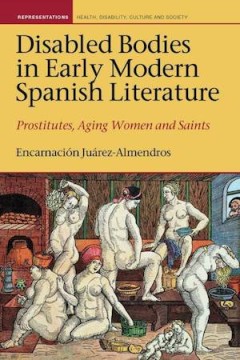
Disabled Bodies in Early Modern Spanish Literature : Prostitutes, Aging Women…
Disabled Bodies in Early Modern Spanish Literature examines the concepts and role of women in selected Spanish discourses and literary texts from the late fifteenth to seventeenth centuries from the perspective of feminist disability theories. It explores a wide range of Spanish medical, regulatory and moral discourses, illustrating how such texts inherit, reproduce and propagate an amalgam of …
- Edition
- -
- ISBN/ISSN
- 9781786940780
- Collation
- -
- Series Title
- -
- Call Number
- 800 JUA d
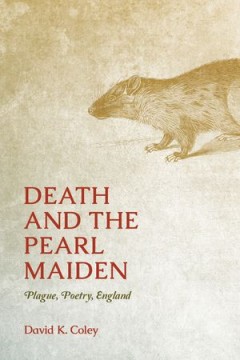
Death and the Pearl Maiden : Plague, Poetry, England
Shows how English responses to the Black Death were hidden in plain sight—as seen in the Pearl, Cleanness, Patience, and Sir Gawain and the Green Knight poems.
- Edition
- -
- ISBN/ISSN
- 9780814213902
- Collation
- -
- Series Title
- -
- Call Number
- 800 COL d
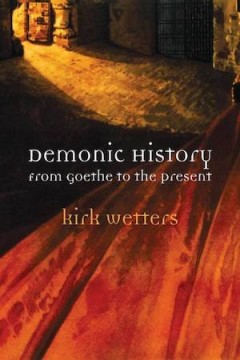
Demonic History : From Goethe to the Present
In this ambitious book, Kirk Wetters traces the genealogy of the demonic in German literature from its imbrications in Goethe to its varying legacies in the work of essential authors, both canonical and less well known, such as Gundolf, Spengler, Benjamin, Lukács, and Doderer. Wetters focuses especially on the philological and metaphorological resonances of the demonic from its core formatio…
- Edition
- -
- ISBN/ISSN
- 9780810129764
- Collation
- -
- Series Title
- -
- Call Number
- 800 WET d
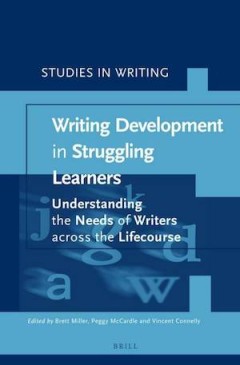
Development of Writing Skills in Individuals with Learning Difficulties : Und…
This volume highlights writing development and its relation to other cognitive domains, such as language and reading, for individuals who struggle to acquire writing proficiency, including those with specific learning disorders (SLD; e.g., dyslexia, dysgraphia, and specific language impairment) which affect writing skills (e.g., handwriting, composition). Writing and writing development are pre…
- Edition
- -
- ISBN/ISSN
- 9789004345812
- Collation
- -
- Series Title
- Studies in Writing Volume: 35
- Call Number
- 800 MIL d
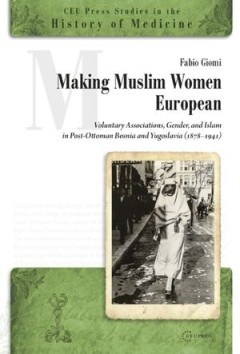
Making Muslim Women European: Voluntary Associations, Gender, and Islam in Po…
This social, cultural, and political history of Slavic Muslim women of the Yugoslav region in the first decades of the post-Ottoman era is the first to provide a comprehensive overview of the issues confronting these women. It is based on a study of voluntary associations (philanthropic, cultural, Islamic-traditionalist, and feminist) of the period. It is broadly held that Muslim women were sil…
- Edition
- -
- ISBN/ISSN
- 9789633863695
- Collation
- -
- Series Title
- -
- Call Number
- 297.092 GIO m
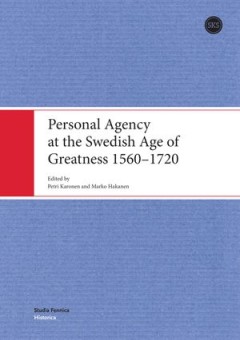
Personal Agency and Swedish Age of Greatness 1560-1720
Internationally, the case of early modern Sweden is noteworthy because the state building process transformed a locally dispersed and sparsely populated area into a strongly centralized absolute monarchy and European empire at the beginning of the 17th century. This anthology provides fresh insights into the state-building process in Sweden. During this transitional period, many far-reaching ad…
- Edition
- -
- ISBN/ISSN
- 9789522228826
- Collation
- -
- Series Title
- -
- Call Number
- 948.5
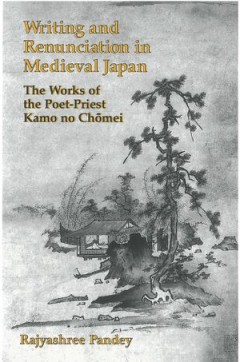
Writing and Renunciation in Medieval Japan: The Works of the Poet-Priest Kamo…
This is the first monograph-length study in English of Kamo no Chomei, one of the most important literary figures of medieval Japan. Drawing upon a wide range of writings in a variety of genres from the Heian and Kamakura periods, Pandey focuses on the terms kyogen kigo (wild words and fancy phrases), shoji soku nehan (samsara is nirvana), hoben (expedient means), and suki (single-minded devoti…
- Edition
- -
- ISBN/ISSN
- 9780472901890
- Collation
- -
- Series Title
- -
- Call Number
- 909.81 PAN w

Tales of Times Now Past: Sixty-Two Stories from a Medieval Japanese Collection
Tales of Times Now Past is a translation of 62 outstanding tales freshly selected from Konjaku monogatari shu, a Japanese anthology dating from the early twelfth century. The original work, unique in world literature, contains more than one thousand systematically arranged tales from India, China, and Japan. It is the most important example of a genre of collections of brief tales which, becaus…
- Edition
- -
- ISBN/ISSN
- 9780472902118
- Collation
- -
- Series Title
- -
- Call Number
- 909.81 URY t
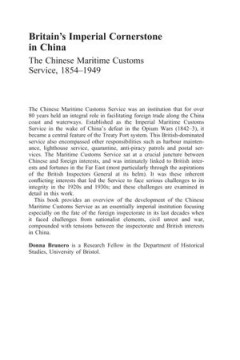
Britain's Imperial Cornerstone in China
This is an in-depth account of the Chinese Imperial Maritime Customs Service, a uniquely cosmopolitan institution established in the wake of China's defeat in the Opium Wars (1842 to 43), and a central feature of the Treaty Port system. The British-dominated service was headed by the famous Robert Hart who founded a far-reaching customs administration that also encompassed other responsibilitie…
- Edition
- -
- ISBN/ISSN
- 9780203315125
- Collation
- -
- Series Title
- -
- Call Number
- 951 BRU b

A Difficult Neighbourhood Essays on Russia and East-CentralEurope since Worl…
Through a series of essays on key events in recent years in Russia, the western ex-republics of the USSR and the countries of the one-time Warsaw Pact, John Besemeres seeks to illuminate the domestic politics of the most important states, as well as Moscow’s relations with all of them. At the outset, he takes some backward glances at the violent suppression of national life in the ‘bloodlan…
- Edition
- -
- ISBN/ISSN
- 9781760460617
- Collation
- -
- Series Title
- -
- Call Number
- -
 Computer Science, Information & General Works
Computer Science, Information & General Works  Philosophy & Psychology
Philosophy & Psychology  Religion
Religion  Social Sciences
Social Sciences  Language
Language  Pure Science
Pure Science  Applied Sciences
Applied Sciences  Art & Recreation
Art & Recreation  Literature
Literature  History & Geography
History & Geography